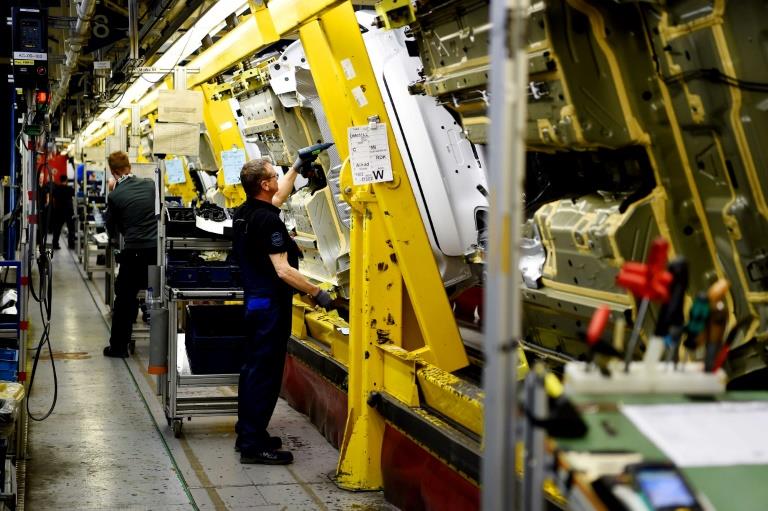
German business confidence stays strong ahead of election
The Munich-based Ifo institute said its business confidence index fell to 115.9 points this month after reaching an all-time peak of 116 points in July.
The result, based on a survey of 7,000 companies, was better than expected as analysts surveyed by Factset had forecast a steeper decline at 115.7 points.
"Sentiment among German businesses remains very strong," Ifo president Clemens Fuest in a statement. "Germany's economy remains on track for growth."
Ifo said the dip was down to business leaders' slightly less positive assessments of the current situation, while their outlook for the future brightened.
The upbeat sentiment adds to a string of positive data for Europe's top economy, bolstering Chancellor Angela Merkel's conservatives ahead of the September 24 vote.
The latest survey confirmed "the almost breathtaking strength of the German economy," said analyst Carsten Brzeski of ING Diba bank.
"Unless German businesses are living in a kind of never-never land, today's Ifo index sends a clear signal that the German economy is powering ahead. What might look boring from the outside is clearly enjoyable from the inside."
Looking to different sectors in the economy, optimism in manufacturing and construction reached new records, although wholesalers became slightly more negative.
The biggest cloud on the horizon came from retailers, who were "clearly less satisfied" with their current situation and less optimistic about the future.
"Car dealers were largely responsible for the downswing," Fuest said.
The dip comes as Germany's mighty car industry has been rocked by a diesel emissions cheating scandal and allegations that automakers for years colluded on technical aspects, including emissions technology.
But the scandal had yet to show an impact on sentiment among automakers, according to Fuest.
"In the automotive sector cartel allegations and the diesel affair have not been reflected in the survey results to date, with the business climate index remaining at a very high level," he said.
Separately, the federal statistics authority Destatis on Friday confirmed that Germany's gross domestic product had grown 0.6 percent in the second quarter, underpinned by strong household and public spending.
It added that the German state notched up a record budget surplus between January and June, with the federal, regional and municipal governments combined taking in 18.3 billion euros ($21.6 billion) more than they spent.

Legal Disclaimer:
MENAFN provides the
information “as is” without warranty of any kind. We do not accept
any responsibility or liability for the accuracy, content, images,
videos, licenses, completeness, legality, or reliability of the information
contained in this article. If you have any complaints or copyright
issues related to this article, kindly contact the provider above.
Most popular stories
Market Research

- Edgen Launches Multi‐Agent Intelligence Upgrade To Unify Crypto And Equity Analysis
- Tappalpha's Flagship ETF, TSPY, Surpasses $100 Million In AUM
- Nebeus Overfunds Equity Crowdfunding Campaign With €3.6M Raised, Reflecting Growing Demand For Regulated Cryptofinance Solutions
- PU Prime Strengthens Global Presence At Dubai Forex Expo 2025 As Global Sponsor
- Dupoin Reports Global Growth, Regulatory Coverage, And User Experience Insights
- WBTC Strengthens Its Role As Multichain Standard For Bitcoin In Defi




















Comments
No comment